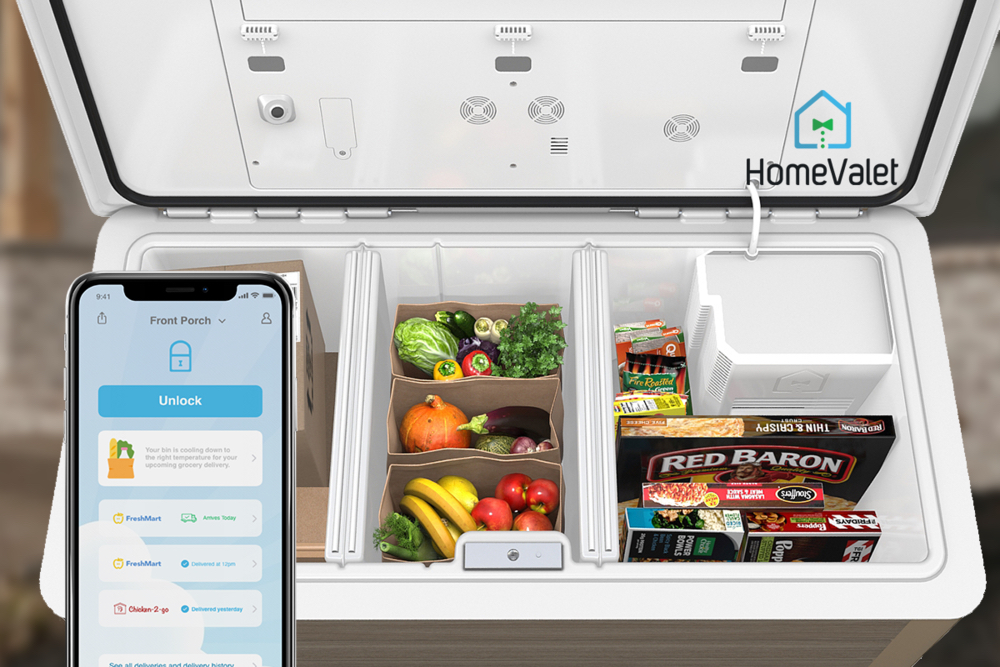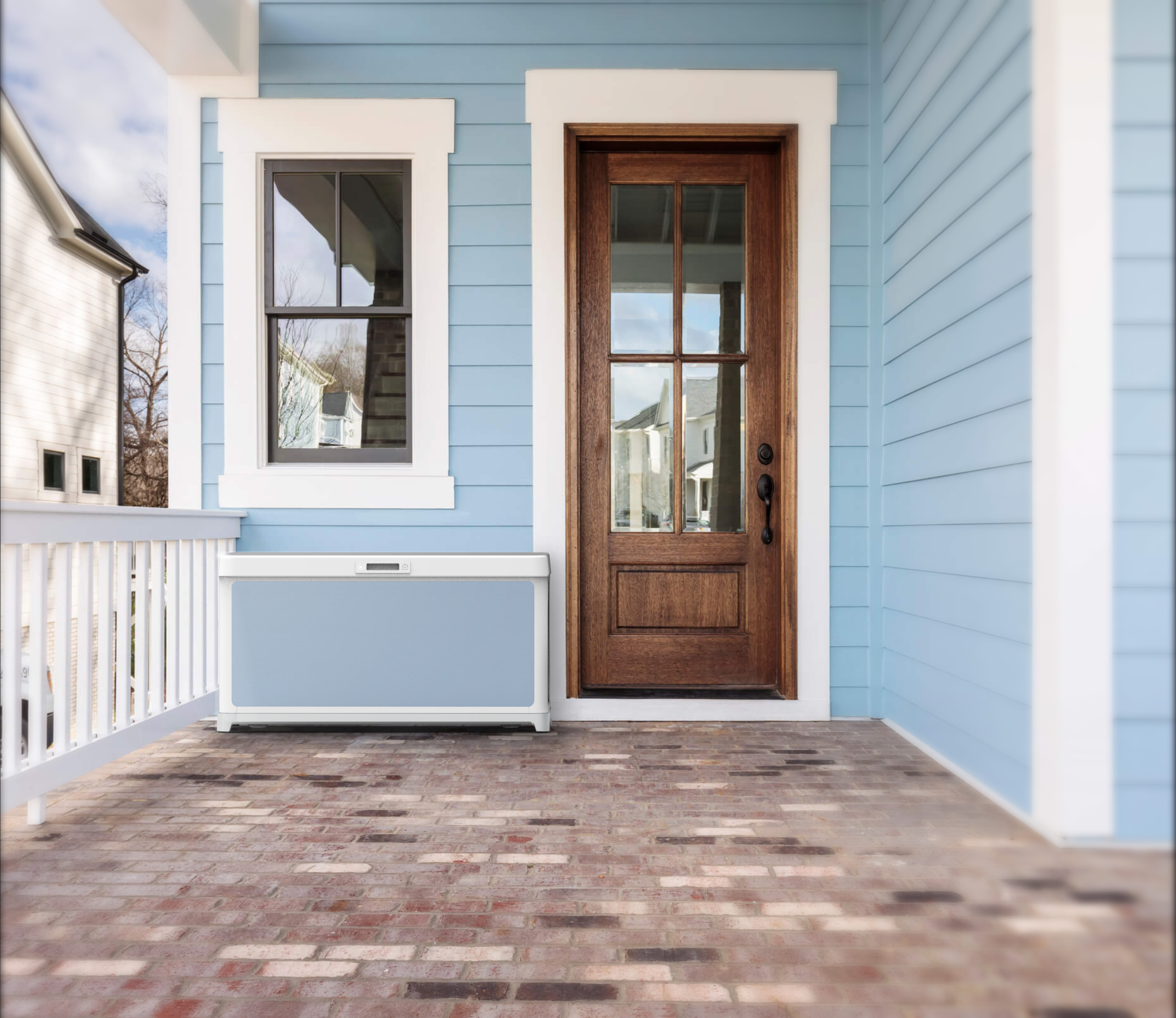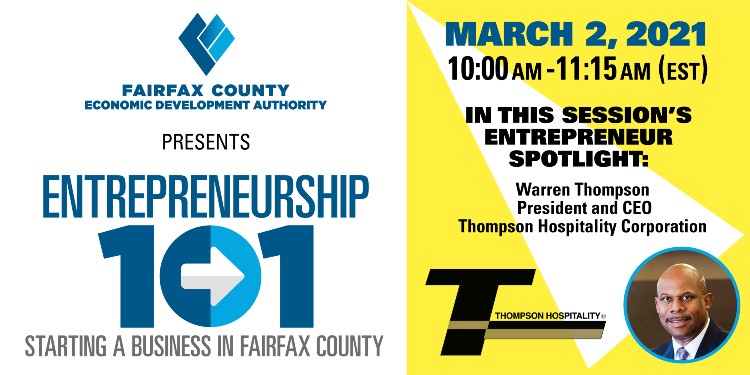E-Newsletter
Tysons-based HomeValet aims to change the future of shopping deliveries

(Image courtesy of HomeValet.)
An innovative product created by a Tysons-based company may change the way people get their groceries and other items delivered to homes.
Father and son team John and Jack Simms run HomeValet, a company reimagining the e-commerce delivery supply chain with its platform that connects retailers and couriers with a secure, temperature-controlled “Smart Box” outside of consumers’ homes. The first of its kind secure Smart Box, software, and app allows 24/7 contactless and unattended delivery spanning everyday parcels, perishable groceries, and more.
Walmart is expected to test the product as early as this spring.
“It’s an entirely new concept which solves some very serious issues with safety, security and convenience for e-commerce consumers,” said John Simms, president, founder and CEO of the company. “It is comprised of an IoT SaaS [Internet of Things Software as a Service] platform to which retailers and couriers connect a consumer app and a smart appliance, or a Smart Box, that is located on the exterior of a home to receive packages and grocery deliveries.”
HomeValet works by enabling its subscribers to schedule their online purchases for delivery to the Smart Box. A courier uses a security token to gain access to it. Grocery items are separated into freezer, refrigeration or ambient temperature compartments, as appropriate.

(photo courtesy of: HomeValet)
John Simms said he envisioned the HomeValet concept more than 20 years ago, but didn’t begin launching the company in earnest until 3 years ago. He explained that his concept for HomeValet germinated back in the late 1990s when he saw a grocery delivery to a neighbor’s home. It seemed like a novel concept at the time, Simms said, but unlikely to gain broad adoption because having to stay home and to take delivery during a particular time window is like waiting for the “cable guy”.
“If you have to schedule the delivery and be at home to receive the delivery, that’s really defeats the objective which is convenience,” Simms said. After that he began writing a business plan and then pursued and obtained patents for a locked receptacle for deliveries that would be controlled over the internet.
“So it’s been a long time coming. Now the ecommerce market is large and technology, including the smart phone, is advanced. Now the market is ready,” Simms said.
HomeValet is in the process of manufacturing the Smart Boxes, with plans to introduce the product to the market soon. The company signed an agreement to enable Walmart to test the product.
“We’re very excited about our consumer pilot early this year with Walmart — the largest grocer in the United States and the largest retailer in the world — to be followed by HomeValet’s product introduction,” Simms said.
IoT systems managing and receiving unattended home delivery of products purchased online is the natural next step in the adoption and growth of ecommerce, Simms predicts. “Home delivery has changed radically and is going to change even more in the really just in the months to come.”
“So what’s going to happen in the very near future is that over time, we think over the next 10 years, most homes in America will have a means of really receiving packages and groceries unattended 24/7 at their home,” Simms said.
He added: “There’ll be a box outside, as ours is now, or there will be something similar to that built into the home, with new home construction, or retrofitted to a home in the case of existing housing units which are connected to HomeValet’s IoT SaaS scheduling platform. Virtually everyone will receive deliveries that way. In the case of a Smart Box built into the side of a home, packages and groceries will be retrieved from the inside rather than having to go outside. That’s a natural evolution for HomeValet.”

Simms is a long-time resident of Fairfax County, and HomeValet is just the latest of the entrepreneurial businesses that Simms has launched here. He opened his his first company, CMDI, a political management firm, in 1981, and Odell Simms, a direct marketing platform, in 1991.
“I’ve always operated in Fairfax County. I think it’s a wonderful business environment. I’ve always been in tech businesses,” said Simms I’ve always had access to an excellent employee base here, affordable office space, good technical capabilities, great connectivity to the Internet. It’s a natural for me to base HomeValet here as well.”
“Fairfax County is a wonderful place to raise a family, and I think that’s very important in employee recruitment,” Simms said. “All the businesses that I’ve operated have been very family-friendly, and a major part of that is having good school systems for the children to be properly educated. I have three children myself who attended Fairfax County Public Schools. They were very well educated. They have gone on to wonderful careers,” noting that son Jack is COO of HomeValet.
“That was all made possible because we were located here in Fairfax County.”

Aspiring entrepreneurs can get start-up advice from Warren Thompson, founder, president and CEO of Reston-headquartered Thompson Hospitality during the Fairfax County Economic Development Authority’s next Entrepreneurship 101 virtual workshop on Tuesday, March 2. Thompson Hospitality is the largest minority-owned food service, and one of the largest retail food and facilities management companies, in the nation — and a family-run business too.
Held every other month, Entrepreneurship 101, or “E-101,” is a virtual workshop presented by the FCEDA with the Fairfax County government, the Fairfax County-based Community Business Partnership, the Virginia Department of Small Business and Supplier Diversity and the U.S. Small Business Administration. Our expert presenters cover registering a business, permitting requirements, business feasibility and business plan basics, business certifications, financing options and government resources.
Click here to register for the March 2 E-101 workshop.
February 25, 2021
News Travels Fast
Stay ahead of the curve with the latest business news from Northern Virginia. Receive updates on moves, incentives, workforce, events and more.